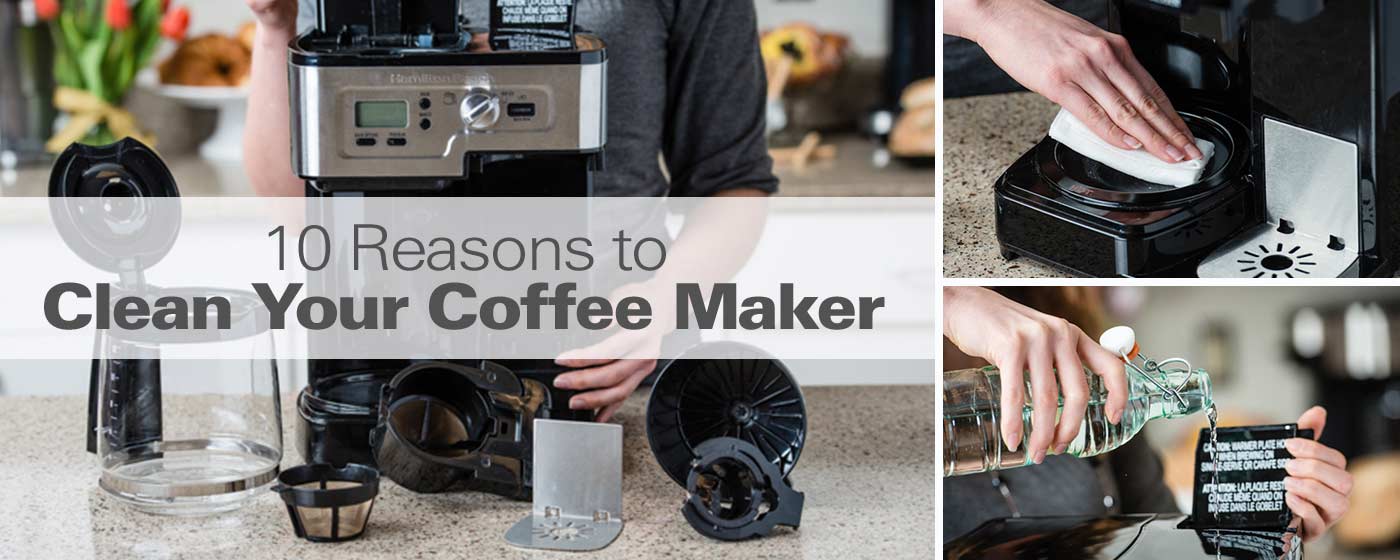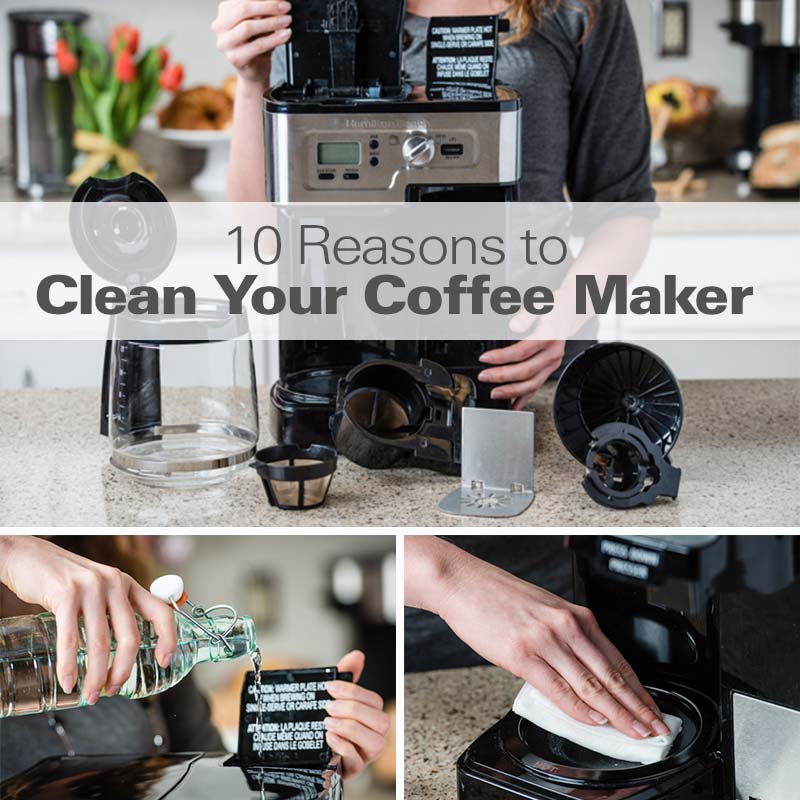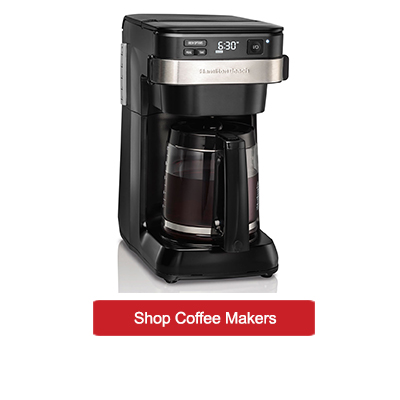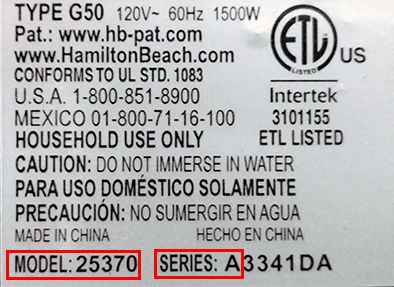

Coffee oil will leave a residue on both your cup and coffee pot. Be sure to wash your coffee pot in the dishwasher (if dishwasher safe) or with hot, soapy water to eliminate buildup. Believe it or not, oil residue can impart a bitter flavor in future cups of coffee.
Calcium and other mineral deposits can build up in your coffee maker restricting water flow and causing lower brewing temperatures. Lower brewing temperatures dilute the coffee flavors and cause an increase in the brew time.
 8. Increases the Life of Your Coffee Maker
8. Increases the Life of Your Coffee MakerBuildup can affect the operation of any parts that come in contact with the water. Over time, this buildup can compromise the system. Regular cleaning will eliminate buildup and help your coffee maker function properly for a long time.
Germs grow easily in a warm, moist environment. Prevent germs in your coffee maker by discarding wet grounds after each brew. Also, leave the lid open after washing to let the inside dry out.
A study by NSF International found yeast and mold in 50% of the household coffee reservoirs tested in their 2011 study. Both are known triggers for allergies and can have negative impacts on your health. Regular cleaning can prevent this growth and the adverse effects it brings.
Brown stains and old, molded coffee are both unsightly and totally preventable. Wash your coffee pot when finished. If you have stubborn stains, mix equal parts of baking soda and water and use to scour the stains. This works great for travel mugs, too.
Hard water can cause calcium to deposit in the heater pipes. This buildup insulates them causing an increase in brew times. Eliminate buildup by thoroughly cleaning your coffee maker at least once a month.
Often, this problem can easily be solved by cleaning out the coffee maker. If a coffee maker is recently cleaned but the problem persists, you could be using too much ground coffee or your grounds may be too fine. Try using slightly less coffee grounds or medium ground coffee.
Be sure to wipe down your hot plate, especially if you spill water or coffee on it. Leaving spills on the plate can ruin the paint finish and cause the coating to flake and the plate to rust.
Whether you’re buying coffee direct from a local roaster or buying a can of store bought coffee, it just tastes better if you’re brewing from a clean coffee maker. Coffee will be rich and full bodied versus the weak and bitter coffee experience you get from a unit with buildup. To get started, check out our guide for How to Clean Your Coffee Maker.
Stay up-to-date on the hottest food trends with our blog, discover a new favorite dish with recipes from our Test Kitchen, access your account, and so much more.
Interested in receiving emails, recipes and tips?
